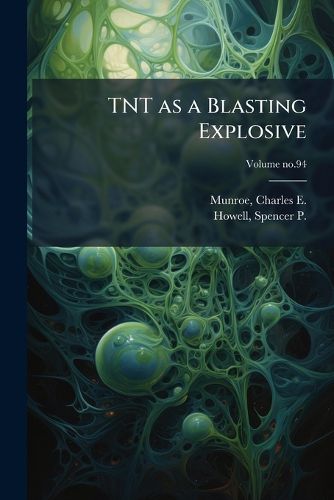Readings Newsletter
Become a Readings Member to make your shopping experience even easier.
Sign in or sign up for free!
You’re not far away from qualifying for FREE standard shipping within Australia
You’ve qualified for FREE standard shipping within Australia
The cart is loading…






TNT as a Blasting Explosive, Volume 94, by Charles E. Munroe and Spencer P. Howell, offers a detailed examination of trinitrotoluene (TNT) as a blasting agent. Published in 1920, this work provides insights into the properties, handling, and applications of TNT during a period of significant industrial and military development.
Munroe and Howell delve into the chemical characteristics of TNT, its manufacturing processes, and its performance compared to other explosives of the time. The book discusses the safe and effective use of TNT in various blasting operations, making it a valuable resource for engineers, chemists, and military personnel involved in construction, mining, and demolition.
This historical text provides a unique perspective on the evolution of explosive technology and remains relevant for those studying the history of chemistry, engineering, and military science. "TNT as a Blasting Explosive" is an essential addition to any collection focused on the development and application of explosive materials.
This work has been selected by scholars as being culturally important, and is part of the knowledge base of civilization as we know it. This work was reproduced from the original artifact, and remains as true to the original work as possible. Therefore, you will see the original copyright references, library stamps (as most of these works have been housed in our most important libraries around the world), and other notations in the work.
This work is in the public domain in the United States of America, and possibly other nations. Within the United States, you may freely copy and distribute this work, as no entity (individual or corporate) has a copyright on the body of the work.
As a reproduction of a historical artifact, this work may contain missing or blurred pages, poor pictures, errant marks, etc. Scholars believe, and we concur, that this work is important enough to be preserved, reproduced, and made generally available to the public. We appreciate your support of the preservation process, and thank you for being an important part of keeping this knowledge alive and relevant.
$9.00 standard shipping within Australia
FREE standard shipping within Australia for orders over $100.00
Express & International shipping calculated at checkout
Stock availability can be subject to change without notice. We recommend calling the shop or contacting our online team to check availability of low stock items. Please see our Shopping Online page for more details.
TNT as a Blasting Explosive, Volume 94, by Charles E. Munroe and Spencer P. Howell, offers a detailed examination of trinitrotoluene (TNT) as a blasting agent. Published in 1920, this work provides insights into the properties, handling, and applications of TNT during a period of significant industrial and military development.
Munroe and Howell delve into the chemical characteristics of TNT, its manufacturing processes, and its performance compared to other explosives of the time. The book discusses the safe and effective use of TNT in various blasting operations, making it a valuable resource for engineers, chemists, and military personnel involved in construction, mining, and demolition.
This historical text provides a unique perspective on the evolution of explosive technology and remains relevant for those studying the history of chemistry, engineering, and military science. "TNT as a Blasting Explosive" is an essential addition to any collection focused on the development and application of explosive materials.
This work has been selected by scholars as being culturally important, and is part of the knowledge base of civilization as we know it. This work was reproduced from the original artifact, and remains as true to the original work as possible. Therefore, you will see the original copyright references, library stamps (as most of these works have been housed in our most important libraries around the world), and other notations in the work.
This work is in the public domain in the United States of America, and possibly other nations. Within the United States, you may freely copy and distribute this work, as no entity (individual or corporate) has a copyright on the body of the work.
As a reproduction of a historical artifact, this work may contain missing or blurred pages, poor pictures, errant marks, etc. Scholars believe, and we concur, that this work is important enough to be preserved, reproduced, and made generally available to the public. We appreciate your support of the preservation process, and thank you for being an important part of keeping this knowledge alive and relevant.